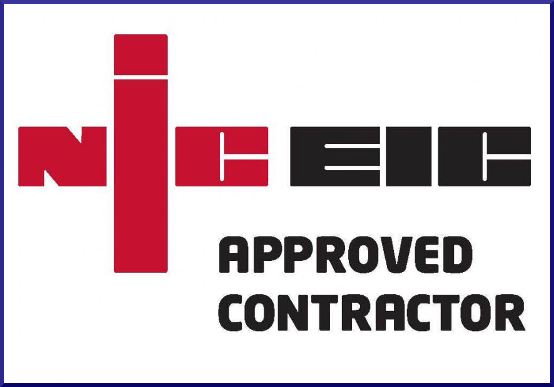EICR Factsheet
EICR Certificates Glasgow
As a landlord in Glasgow, it is your responsibility to ensure that everything in your property is up to date and meets regulated standards. This also includes anything related to electrics in the building. Get piece of mind when it comes to securing an EICR in Glasgow.
Our experienced engineers will carry out an in-depth inspection of all electrical systems in your home, identifying any issues when they might arise. At Energy Certificates Scotland Ltd, we understand that preparing your property for a tenant can be a stressful and tiring experience. Let us take the hassle out of securing an EICR certificate to your property in Glasgow. Our quick EICR service will ensure that your property is approved in good time.
For years, we have specialised in Glasgow for both commercial and domestic properties. This gives you peace of mind when it comes to carrying out these important electrical checks. Should any piece of electrical equipment fail without being checked, you could face significant consequences as a landlord. Let Energy Certificates Scotland take the stress out of your compliance in Glasgow.
Whether you’re a landlord, homeowner, or even a local business in Glasgow. We can help you get an Electrical Installation Condition Report, ensuring that you meet all insurance requirements. Your tenants & customers health and safety is extremely important, so it’s vital that you do everything you can in order to ensure your electrical appliances are not only in working order, but safe to use.
The rules have changed relatively recently, so even if you didn’t need a report in the past, from July 1st 2020 you will now be legally obliged to have a report for any property that you rent out. This is also the case if you own a business, and a report must be made of your building. Although there is no legal requirement to have a report done if you own the home you live in, it is still recommended that you get one done once every ten years as a minimum – as lots of fires start thanks to faulty electrics in the home.
An EICR certificate will be valid for five years after it was issued. Despite this however, it is always recommended that you have a new certificate issued for the start of each tenancy, as it can give both you and your tenants the peace of mind that the property is as safe as possible.
The costs of the report will vary depending on the kind of property you’re living in. For example, a studio flat will have a lower cost than a detached property. The best thing to do is to contact us and give us some details about your property, and we will then be able to put together a price for you.
In order for an EICR certificate to be legal, the inspection must have been carried out by a qualified electrician who has undertaken the appropriate training courses to arm them with the knowledge they need. Simply being a qualified electrician is not enough, but you can be sure that each and every member of our team will have the qualifications needed. If you do hold the correct qualifications, you are also able to issue certificates for properties that you own yourself.
The inspection is very thorough and will seek to identify any issues with a building’s electrics that might go on to cause a serious problem with regards to safety in the future. All wiring and equipment will be checked visually as well as physically, and this will include things like cables, distribution boards, switches and sockets. To put it simply, if there is something in your property that has anything to do with electricity, it will be tested during this inspection.
In order to be sure that your property satisfies all regulations and should be given a certificate, there are four stages that will take place during your inspection. These are: Visual inspection: This is where the property will be inspected at face value, to see if there is anything that is obviously wrong about anything that could cause a problem. Dead testing: This part of the test will test your electric connectors to ensure that the connections are sound, and that the insulation is working as it should. The insulation should be in place to prevent system shocks, so it is particularly important that it is intact. Live testing: Here, the engineer is testing what would happen if there was a major problem with any part of your system. Ideally, your system would shut down quickly to avoid any further damage, and this test will work out whether your system is able to perform in this way. RCD testing: This is where your residual-current devices are tested. These are in place for the purpose of preventing fires, so this is a very important stage in the process if you’re renting out your property. Will I be without power during the inspection? You will have power for some of the time, but there will need to be times where it is switched off. Therefore, you should take all appropriate measures to make sure that everything is safe and secure and avoid opening your fridge and freezer while there is no power to it.
Again, this will depend on the size of your property, and exactly how much there is to inspect. A small apartment might take as little as one hour, but you could be looking at something closer to four hours if you live in a larger property.
Unfortunately, yes. A property can fail the inspection and will then need to repair or replace parts as recommended before a further inspection takes place. You will not be able to begin a new tenancy until you have the certificate in place.
When your new tenants move into your property, they must be given a copy of the most up to date inspection certificate. In addition to this, if you have a new certificate issued while the tenants remain at the property, you must give them a copy of the report within 28 days of the inspection taking place.
If there is work that needs to be done, this will be detailed in the report that you are given after the inspection. Once you’re told what needs to be changed, you have 28 days to get this work done and ensure that your property then meets all required standards. If you feel that some of the demands made in the report are unfair, you can report this to your local authority, who must then respond within 7 days. The 28 day period in which you should complete work is suspended if you are waiting for a decision from the local authority. Sometimes, landlords refuse to get work done, and if the local authority decide that they’re in breach of regulations, they can work with the tenants to get work done and then send the bill directly to the landlord – so it is always best to be proactive in dealing with any issues that you might have.
Other than the obvious legal requirements to have such a certificate, there are other benefits, too. For example, you will have the peace of mind of knowing that your tenants are taken care of and that they will be safe while in your property. In addition, you are likely to save money in the long term by dealing with any issues before they become a big problem. To put it simply – if you’re a landlord, it is essential that you keep your certificates up to date.


Checking...
Retry »
Sending message...
Enquiry Form
Fill in the form below and we will be in touch soon
